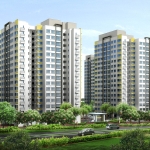| BUILDING SITES: The residential sector can become the growth engine |
| English Section Publicat de Ovidiu Stefanescu 30 Iul 2015 09:12 |
 The Romanian residential construction market has a considerable potential for development, given the development of economy, increasing purchasing power and the revival of the financial markets and real estate. In addition, the average living area per capita in Romania is about 28 sqm/ inhabitant, below the level in other European countries, where the average exceeds 30 square meters/ capita. This constitutes also a growth factor. Moreover, the estimated increase of GDP in EU, resulting in a growth of the revenue of Romanians workers abroad, who will continue to significantly contribute to the development of rural residential construction. "We expect that, in 2015, the dynamics of building permits issued in rural areas to grow substantially. This market is largely driven by funds brought into the country by Romanians working in EU countries", is emphasized into an analysis conducted by Polish market research company PMR. Given that urban residential projects are usually undertaken over many years, together with the fact that the Romanian economy could grow by more than 3% per year, developers should feel encouraged to increase residential construction activity in Romania, at least in the short term. Romanian residential construction sector is on a strong upward trend in the first three months in 2015, with 9,232 dwellings completed this year, increasing by 11.6% compared to the same period of 2014. This is the best performance in the field in the last six years. However, the outcome is still almost 15% below the record level of 2008. A similar trend is registered regarding the number of building permits issued. Last year in Romania were granted permits for dwellings with a total area of 7.4 million square meters - an evolution of 4.8% from the 2013 level - and upward trend will continue in the coming years, supported by reviving the local economy, according to PMR estimates. Moreover, the recovery dynamics of urban residential construction is heavily supported by the implementation of the so called «First House» (Prima Casă) program, consisting in government support for contracting mortgages. The Romanian residential construction market has a considerable potential for development, given the development of economy, increasing purchasing power and the revival of the financial markets and real estate. In addition, the average living area per capita in Romania is about 28 sqm/ inhabitant, below the level in other European countries, where the average exceeds 30 square meters/ capita. This constitutes also a growth factor. Moreover, the estimated increase of GDP in EU, resulting in a growth of the revenue of Romanians workers abroad, who will continue to significantly contribute to the development of rural residential construction. "We expect that, in 2015, the dynamics of building permits issued in rural areas to grow substantially. This market is largely driven by funds brought into the country by Romanians working in EU countries", is emphasized into an analysis conducted by Polish market research company PMR. Given that urban residential projects are usually undertaken over many years, together with the fact that the Romanian economy could grow by more than 3% per year, developers should feel encouraged to increase residential construction activity in Romania, at least in the short term. Romanian residential construction sector is on a strong upward trend in the first three months in 2015, with 9,232 dwellings completed this year, increasing by 11.6% compared to the same period of 2014. This is the best performance in the field in the last six years. However, the outcome is still almost 15% below the record level of 2008. A similar trend is registered regarding the number of building permits issued. Last year in Romania were granted permits for dwellings with a total area of 7.4 million square meters - an evolution of 4.8% from the 2013 level - and upward trend will continue in the coming years, supported by reviving the local economy, according to PMR estimates. Moreover, the recovery dynamics of urban residential construction is heavily supported by the implementation of the so called «First House» (Prima Casă) program, consisting in government support for contracting mortgages. |
ABONARE REVISTA (click aici): PROIECTE | INVESTITII | REVISTE | INDEX COMPANII
DATE DE CONTACT: Agenda Constructiilor & Fereastra - Tel/Fax: 021-336.04.16, 031-401.63.88




















































